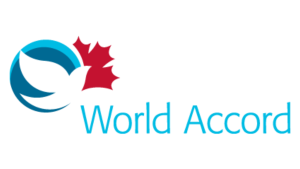Project Global Village (PAG) – Honduras
Founded in 1983 by Chet Thomas and Ells Culver, Proyecto Aldea Global (PAG) is a Honduran, non-profit organization committed to empowering families to reduce poverty, build just, peaceful and productive communities based on Christian values. PAG uses an integral development strategy that includes many different programs such as health & HIV/AIDS prevention, domestic violence, education, agro-industrial development, microcredits, environmental development & infrastructure.
Location
Central & Western Honduras (World Accord supports work in department of Comayagua only – See maps lower right)
PROGRAM
Producing to grow
The “Producing to grow” Program of Proyecto Aldea Global, has three axis of intervention: The program focuses on developing small family micro businesses with fish, pigs, and chicken projects that will directly help 120 Lenca families (2 years) to improve their food security levels. These micro business projects provide meat and protein – a protein source for the poor families and their children who suffer from malnutrition, particularly those children under 5 years of age. The projects also produces food for local families and communities in and around the PANACAM national park.
HONDURAS
Honduras has a population of 8.3 million. 60% of the population lives below the poverty line, and 1/3 live in absolute poverty – most in rural areas. Honduras is the 3rd poorest country in the Hemisphere, and it ranks 162nd in terms of GDP per capita in the world.
Seventy-two per cent of Hondurans can’t afford the basic food basket. The main sources of income for the country are remittances from Hondurans living overseas, agriculture and maquila manufacturing (one of the largest sectors in the world). All have been hurt by the recent economic downturn. Out-migration rates are high due to widespread unemployment (almost 1/3). Despite the rapid depletion of resources, Honduras has significant natural assets and biodiversity for a small country.
Region of Work
Program participants typically live on small farms measuring 3,500 m2 or less. On average, each adult makes an estimated income of CDN $5-7 per day. The typical age of adult beneficiaries is between 35 and 40 years. This age reflects the patterns of outmigration from this region due to lack of income generation opportunities.
People in this region generally complete 3.5 years of formal schooling, and have an average 83% level of functional literacy. Direct participants are spread out over 12 communities that sit 1,000 metres above sea level or higher. All of the communities are located in the lower basin of the Cerro Azul Meambar National Park, a protected ecological reserve. Most beneficiaries are descendents of the Lenca indigenous population that lived in this region prior to colonization, and maintain very low levels of civic participation.
| Honduras | Canada | |
|---|---|---|
| Population | 8.4 Million | 35.1 |
| Size | 112 000 km2 | 9.9 million km2 |
| Ranking- Human Development Index | #121 in the world | #11 in the world |
| Life Expectancy | #148 in the world | #13 in the world |
| Population below the Poverty Line | 60% | 9.4% |
| Carbon Footprint per person | #148 in the world | #14 in the world |
| Employment in Agriculture | 39% | 2% |
| Internet Users | 8.7% | 82% |
| Women in Parliament | 20% | 25% |
| Cost of Basic Needs Basket for a Family of 4 | $172.50 | $2,300 |
| Average Monthly Minimum Wage | $244 (agriculture) | $1,690 |
| GDP Per Capita | #162 in world | #27 in world |
